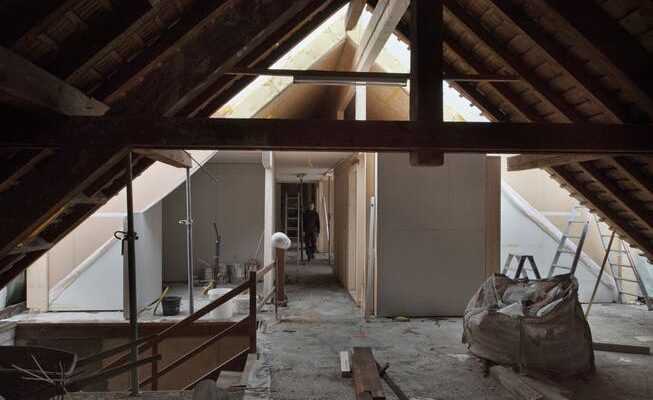Dependencies on fossil fuels are determined to reduce. Energy, security and climate policy should be thought of together. Europe must now act decisively in light of the completely new geopolitical situation.
The building sector causes around a quarter of Swiss greenhouse gas emissions.
Neither the smartest security experts nor the best analysts in the intelligence services expected this Russian war of aggression in Ukraine. The world sees itself thrown back into times that we thought were long gone: imperialism is clearly back and claims are being enforced with the most brutal methods of war. The German Chancellor Olaf Scholz rightly spoke of a “turning point”.
I am firmly convinced that since February 24, 2022 we have had to think about three policy areas together: these are security, energy and climate policy. Western Europe and also Switzerland will increase their security if they reduce their dependency on fossil fuels. Because as long as our democracies base their energy supply entirely or only partially on autocratic systems, they will always be forced to make compromises. If the autocrats are ready for war and aggressive, as they are today, we will ultimately be unable to act. Or to put it another way: The West can be blackmailed.
Draft law is insufficient
There is a lot of debate at the moment about upgrading Western armed forces. Sure: Switzerland in particular has some homework to do in this area. However, it would be just as important to subject Swiss energy policy to a thorough review now. The goals must be: reduce problematic dependencies in supply and at the same time decisively tackle climate policy goals. Both go hand in hand. It seems to me that building power plants that produce electricity using gas is not the smartest way forward.
In the medium term, hydropower is to be expanded as a source of electricity in Switzerland. At the same time, laws and regulations need to be adapted in such a way that photovoltaics are promoted and can be used much more easily and quickly in buildings. In the short term, however, we must start where it is easiest: we must reduce our use of fossil fuels such as oil and gas, and we can do this to a large extent with the building stock. Progress is still far too slow here.
Energy Minister Simonetta Sommaruga appointed a new CO at the end of 20212-Law sent for consultation. This draft law is insufficient: it provides too few incentives for accelerating the energy-related refurbishment of Switzerland’s building stock. Subsidies are provided for in the draft law, but they are insignificantly more than are currently available. It is not possible to reduce the federally postulated energy consumption in buildings per square meter of living space by 30 percent by 2030 compared to 2010 in this way. And Switzerland’s goal for 2050, namely to emit no more greenhouse gases, will not be achieved either.
Refurbishment of the building envelope
The building sector causes around a quarter of Swiss greenhouse gas emissions. Politicians are currently focusing far too much on replacing heating systems. For various reasons, however, this will not be sufficient to meet the building-related part of the net zero 2050 climate goals. The greatest potential lies in the energetic refurbishment of the building envelope. Much more attention should be paid to it, also for reasons of summer heat protection. The resolute move away from fossil fuels, combined with subsidies and deregulation regarding the innovative renovation of building envelopes, this is the way forward in the building sector.
Unfortunately, I do not notice any acceleration of these processes. On the contrary: Not just the CO2law is insufficient, and it is also very unfortunate that the implementation of the cantonal energy laws has been lacking since 2014.
Russia’s war of aggression in Ukraine must now open our eyes: we must do everything we can to increase our security through smart, rapid and resolute energy policy measures. This is how we strengthen our independence and make the indispensable contribution to saving the global climate.
Bernhard Lanzendorfer is CEO of St. Gobain Weber AG.
